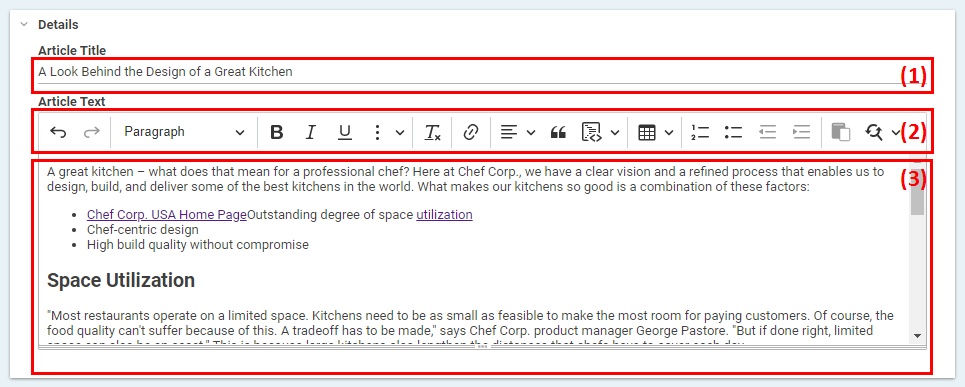Studio User Manual / Version 2301
Table Of ContentsIn Studio, you can edit fields containing two different types of text, Simple text fields (1), which are used for short descriptions or to specify a language, etc. and rich text fields (3), which are used for full-length articles, or the like.
In simple text fields, you can enter a specific number of characters without formatting. In fields for formatted text, you have many more possibilities: you can format your text, insert tables, add links to other content items and much more besides. The following subsections show you how you can manage your content in rich text fields.
You can use the integrated WYSIWYG editor to edit text in a way that is familiar from other text editors. When editing text, the following options are available to you (2):
Undo/redo last editing action
Apply paragraph styles tomcat
Bold text
Italic text
Underline
Behind the three dot icon menu: strikethrough, subscript, superscript, and inline code
Remove format
Link
Text alignment: left-aligned, right-aligned, centered, or justified
Block quote
Insert code block
Insert table
Numbered list
Bulleted list
Increase or decrease text indents
Paste content
Find and replace

Note
Internally, rich text is stored as XML. There might be situations, for example, text written in older CoreMedia versions or text imported through external tools, where you have to edit this XML directly. By default, an administrator can switch to an XML view and edit the XML source in this view. See Section 3.7, “Editing Rich Text Source Code” for more details.




